
Patricia Oren Kearney Cadigan is a British-American science fiction author, whose work is most often identified with the cyberpunk movement. Her novels and short stories often explore the relationship between the human mind and technology. Her debut novel, Mindplayers, was nominated for the Philip K. Dick Award in 1988.
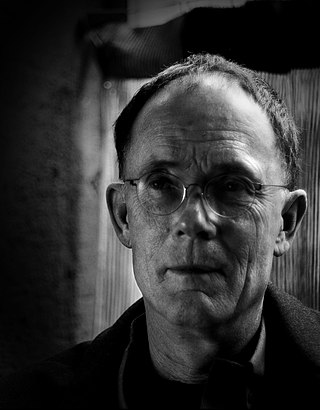
William Ford Gibson is an American-Canadian speculative fiction writer and essayist widely credited with pioneering the science fiction subgenre known as cyberpunk. Beginning his writing career in the late 1970s, his early works were noir, near-future stories that explored the effects of technology, cybernetics, and computer networks on humans—a "combination of lowlife and high tech"—and helped to create an iconography for the information age before the ubiquity of the Internet in the 1990s. Gibson coined the term "cyberspace" for "widespread, interconnected digital technology" in his short story "Burning Chrome" (1982), and later popularized the concept in his acclaimed debut novel Neuromancer (1984). These early works of Gibson's have been credited with "renovating" science fiction literature in the 1980s.

Jack McDevitt is an American science fiction author whose novels frequently deal with attempts to make contact with alien races, and with archaeology or xenoarchaeology. Most of his books follow either superluminal pilot Priscilla "Hutch" Hutchins or galactic relic hunters Alex Benedict and Chase Kolpath. McDevitt has received numerous nominations for Hugo, Nebula, and John W. Campbell awards. Seeker won the 2006 Nebula Award for Best Novel.

Gardner Raymond Dozois was an American science fiction author and editor. He was the founding editor of The Year's Best Science Fiction anthologies (1984–2018) and was editor of Asimov's Science Fiction magazine (1986–2004), garnering multiple Hugo and Locus Awards for those works almost every year. He also won the Nebula Award for Best Short Story twice. He was inducted to the Science Fiction Hall of Fame on June 25, 2011.
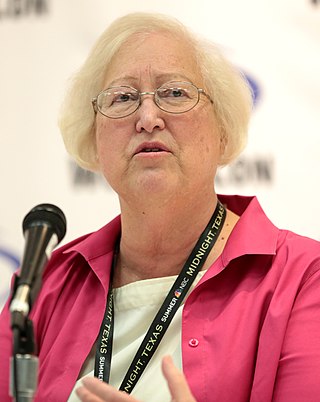
Constance Elaine Trimmer Willis, commonly known as Connie Willis, is an American science fiction and fantasy writer. She has won eleven Hugo Awards and seven Nebula Awards for particular works—more major SF awards than any other writer—most recently the "Best Novel" Hugo and Nebula Awards for Blackout/All Clear (2010). She was inducted by the Science Fiction Hall of Fame in 2009 and the Science Fiction Writers of America named her its 28th SFWA Grand Master in 2011.

LGBT themes in speculative fiction include lesbian, gay, bisexual, or transgender (LGBT) themes in science fiction, fantasy, horror fiction and related genres. Such elements may include an LGBT character as the protagonist or a major character, or explorations of sexuality or gender that deviate from the heteronormative.

Ace Books is a publisher of science fiction (SF) and fantasy books founded in New York City in 1952 by Aaron A. Wyn. It began as a genre publisher of mysteries and westerns, and soon branched out into other genres, publishing its first science fiction title in 1953. This was successful, and science fiction titles outnumbered both mysteries and westerns within a few years. Other genres also made an appearance, including nonfiction, gothic novels, media tie-in novelizations, and romances. Ace became known for the tête-bêche binding format used for many of its early books, although it did not originate the format. Most of the early titles were published in this "Ace Double" format, and Ace continued to issue books in varied genres, bound tête-bêche, until 1973.

Terri Windling is an American editor, artist, essayist, and the author of books for both children and adults. She has won nine World Fantasy Awards, the Mythopoeic Fantasy Award, and the Bram Stoker Award, and her collection The Armless Maiden appeared on the short-list for the James Tiptree, Jr. Award.
Stephen Dedman is an Australian writer of dark fantasy and science fiction stories and novels.
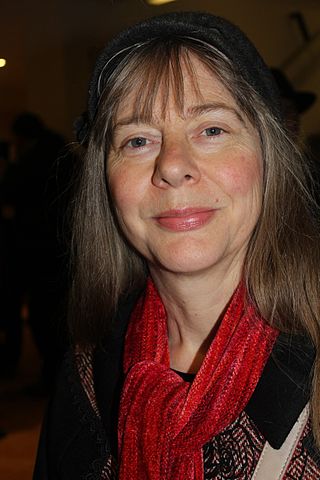
Lucy Sussex is an author working in fantasy and science fiction, children's and teenage writing, non-fiction and true crime. She is also an editor, reviewer, academic and teacher, and currently resides in Melbourne, Australia.

Terence William (Terry) Dowling, is an Australian writer and journalist. He writes primarily speculative fiction though he considers himself an "imagier" – one who imagines, a term which liberates his writing from the constraints of specific genres. He has been called "among the best-loved local writers and most-awarded in and out of Australia, a writer who stubbornly hews his own path ."
Kathryn Elizabeth Cramer is an American science fiction writer, editor, and literary critic.
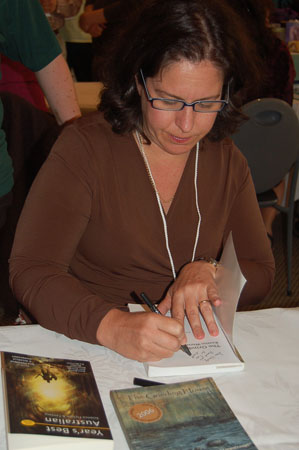
Kaaron Warren is an Australian author of horror, science fiction, and fantasy short stories and novels.
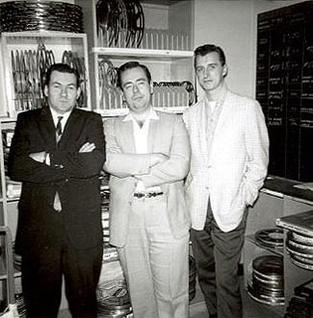
James Judson Harmon, better known as Jim Harmon, was an American short story author and popular culture historian who wrote extensively about the Golden Age of Radio. He sometimes used the pseudonym Judson Grey, and occasionally he was labeled Mr. Nostalgia.
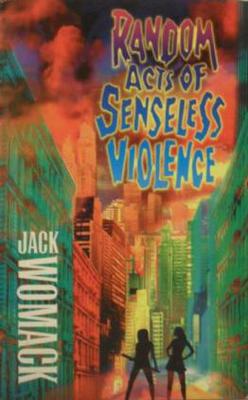
Random Acts of Senseless Violence is a dystopian and speculative fiction novel by Jack Womack.

The works of William Gibson encompass literature, journalism, acting, recitation, and performance art. Primarily renowned as a novelist and short fiction writer in the cyberpunk milieu, Gibson invented the metaphor of cyberspace in "Burning Chrome" (1982) and emerged from obscurity in 1984 with the publication of his debut novel Neuromancer. Gibson's early short fiction is recognized as cyberpunk's finest work, effectively renovating the science fiction genre which had been hitherto considered widely insignificant.

Let's Put the Future Behind Us is a speculative fiction novel by Jack Womack set in post-Soviet Russia and released in 1996. It chronicles the transition of bureaucratic apparatchiks into an endemically corrupt Russian quasi-capitalism in the early 1990s dominated by oligarchs, criminals and ultra-nationalist political groups.
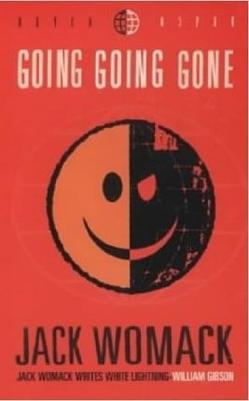
Going, Going, Gone is a 2000 alternate history novel by American writer Jack Womack. As the sixth and final installment of his acclaimed Dryco series, the novel was the subject of much anticipation and speculation prior to its release, and was critically well received.
Steven Paulsen is an Australian writer of science fiction, fantasy and horror fiction whose work has been published in books, magazines, journals and newspapers around the world. He is the author of the best selling children's book, The Stray Cat, which has seen publication in several foreign language editions. His short story collection, Shadows on the Wall: Weird Tales of Science Fiction, Fantasy and the Supernatural), won the 2018 Australian Shadows Award for Best Collected Work, and his short stories have appeared in anthologies such as Dreaming Down-Under, Terror Australis: Best Australian Horror, Strange Fruit, Fantastic Worlds, The Cthulhu Cycle: Thirteen Tentacles of Terror, and Cthulhu Deep Down Under: Volume 3.
















